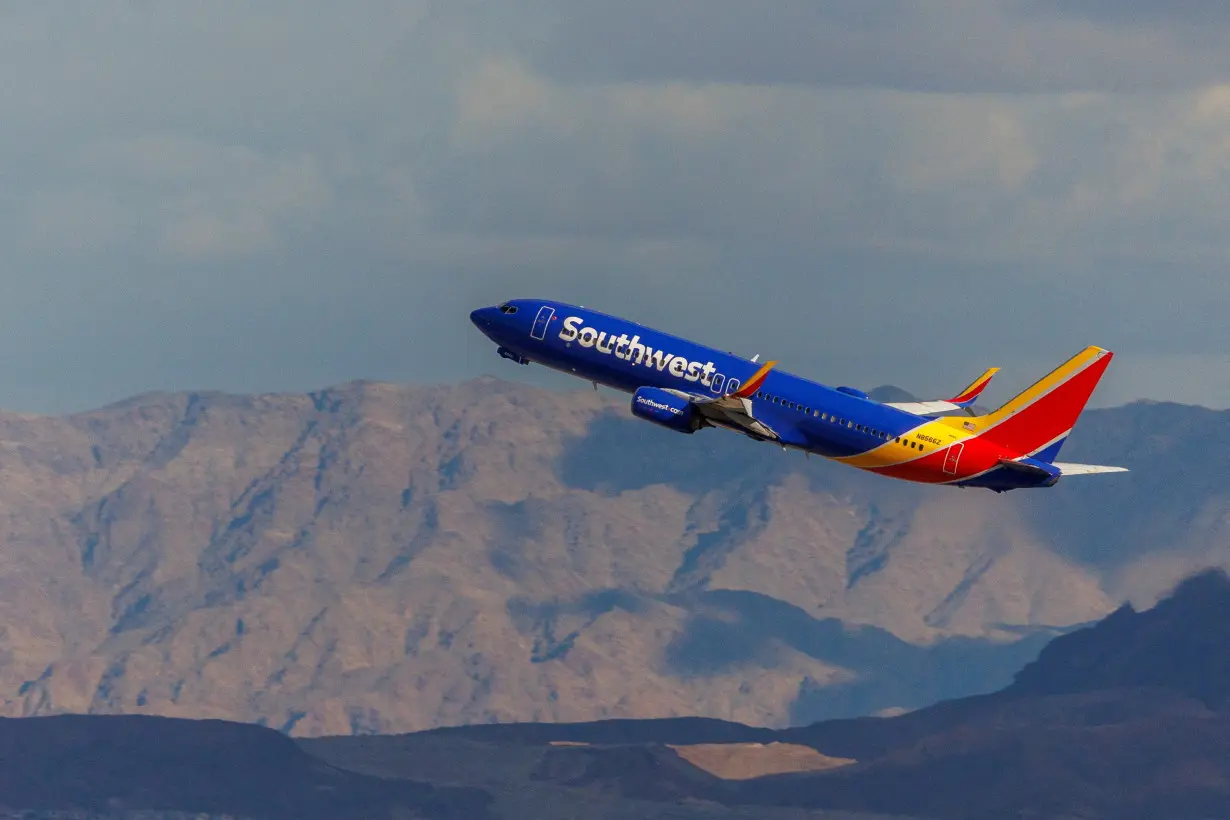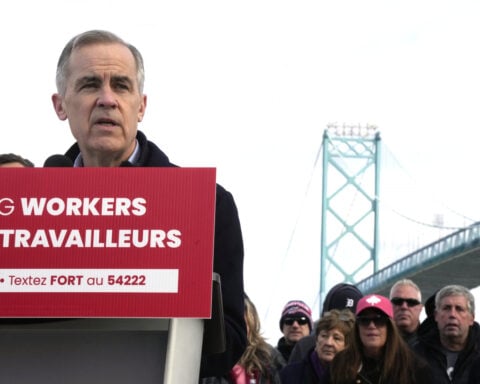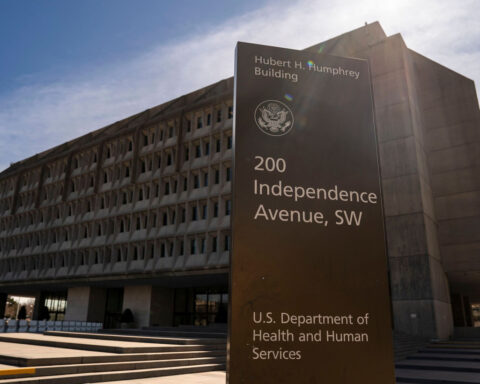By Shivansh Tiwary
(Reuters) -Southwest Airlines flagged ongoing struggles with pricing in its second quarter on Wednesday, despite expectations for record summer travel demand in the United States.
The low-cost carrier lowered its expectations for revenue per available seat miles (RASM) - a key proxy for pricing power - even though it expects record revenue due to high demand. But the pricing issues have become a sore spot for investors.
Southwest has had difficulty accurately predicting demand trends, which has meant it was unable to sell the number of seats it planned.
Shares fell 4% on Wednesday after it lowered its RASM expectations for the second quarter to an expected drop of 4% to 4.5%, compared with its previous estimate for a fall of 1.5% to 3.5%.
The stock has lost 25% of its value in the past two years and has been targeted by activist investor Elliott Management, which has called for leadership and board changes. Shares of competitors Delta and United have risen 55% and 25% in the past two years, respectively.
Elliott, which has disclosed an 11% stake in the company, on Wednesday reiterated its call for change, saying in a statement that "Southwest is led by a team that has proven unable to adapt to the modern airline industry".
However, the company is not the only airline suffering from pricing issues. American Airlines cited a similar issue when it lowered its second-quarter unit revenue forecast last month.
Southwest, which operates an all-Boeing fleet, has also been hurt by the planemaker's ongoing safety crisis that has delayed deliveries of its new jets on order, forcing the airline to moderate its growth plans.
Earlier this year, Southwest was forced to remove the smaller MAX 7 aircraft from its 2024 fleet plans due to certification issues.
The smallest MAX jet was expected to provide Southwest flexibility to adjust capacity to suit demand as passenger traffic trends stay dynamic.
"With no expected changes in capacity, unit revenue looks worse, which indicates weaker price point and/or lower ancillary revenue," Citi analyst Stephen Trent said.
Airlines are expected to transport 271 million passengers during the summer season, up 6.3% from last year, according to Airlines for America that represents major U.S. carriers.
(Reporting by Shivansh Tiwary in Bengaluru; Editing by Shailesh Kuber and Shounak Dasgupta)

 Trump has begun another trade war. Here's a timeline of how we got here
Trump has begun another trade war. Here's a timeline of how we got here
 Canada's leader laments lost friendship with US in town that sheltered stranded Americans after 9/11
Canada's leader laments lost friendship with US in town that sheltered stranded Americans after 9/11
 Chinese EV giant BYD's fourth-quarter profit leaps 73%
Chinese EV giant BYD's fourth-quarter profit leaps 73%
 You're an American in another land? Prepare to talk about the why and how of Trump 2.0
You're an American in another land? Prepare to talk about the why and how of Trump 2.0
 Chalk talk: Star power, top teams and No. 5 seeds headline the women's March Madness Sweet 16
Chalk talk: Star power, top teams and No. 5 seeds headline the women's March Madness Sweet 16
 Purdue returns to Sweet 16 with 76-62 win over McNeese in March Madness
Purdue returns to Sweet 16 with 76-62 win over McNeese in March Madness








